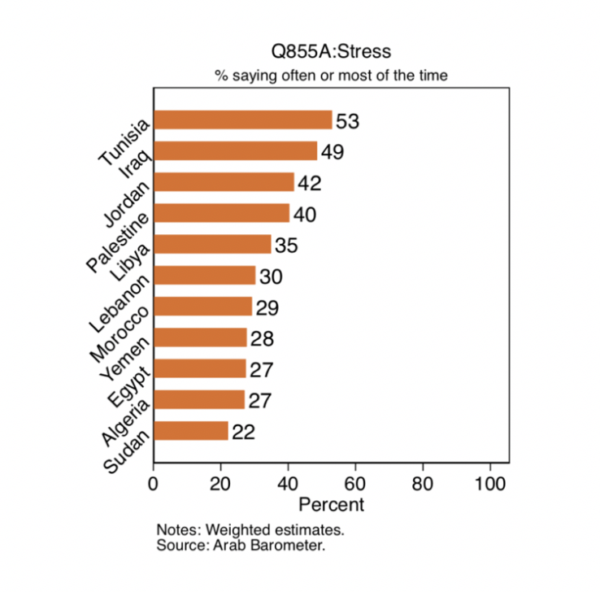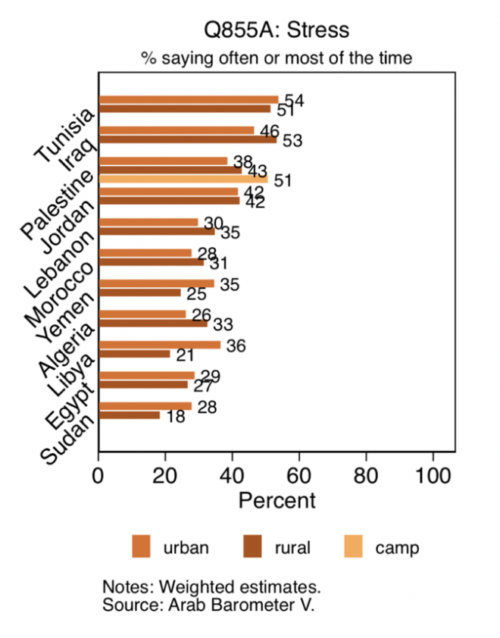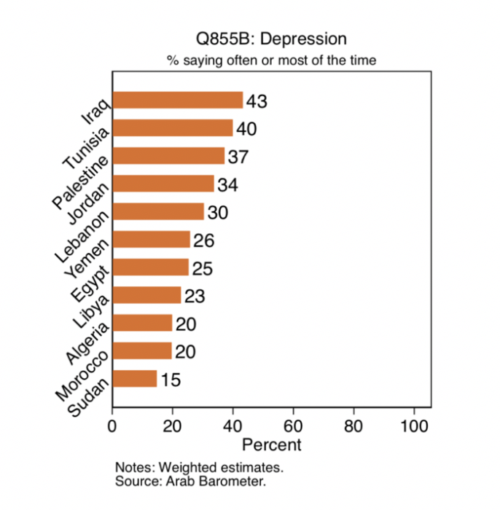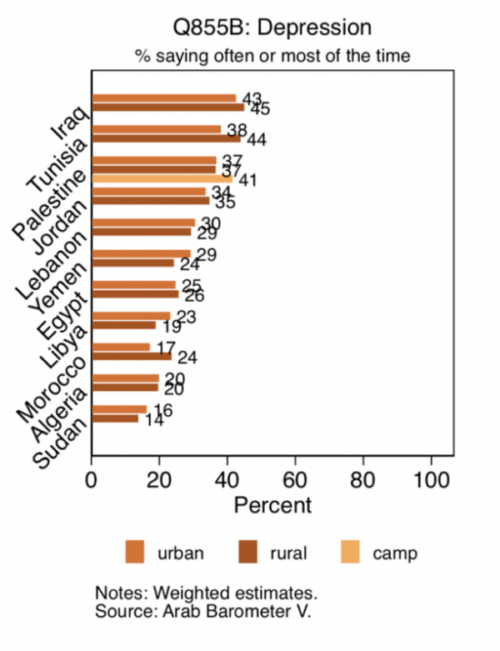Background
In the fifth and latest wave of the Arab Barometer, we asked over 25,000 citizens throughout the Middle East and North Africa questions about potential issues regarding mental health. These results suggest additional challenges for governments across the region to tackle.
The following factsheet sets out some of the main findings and links to wider information where it is available.
Key facts and figures
Stress
- Across the region, roughly one third (35 percent) state that they are frequently feeling stressed.
- Tunisians (53 percent), Iraqis (49 percent) and Jordanians (42 percent) are mostly likely to report stress that they experience often or most of the time. Meanwhile, Egyptians (27 percent), Algerians (27 percent), Sudanese (22 percent) and Kuwaitis (12 percent) are least likely to experience frequent stress.
- Urban populations in Tunisia, Yemen, Libya, Egypt and Sudan are more likely to report stress. Meanwhile, rural populations in Iraq, Lebanon, Morocco, and Algeria display are higher likelihood to report stress. There is no substantive difference across urban and rural populations in Jordan. Unsurprisingly, people in refugee camps in Palestine are more likely to report stress, followed by rural and then urban populations.
Depression
- Across the region, about three-in-ten (29 percent) say they suffer from depression.
- Iraqis (43 percent) and Tunisians (40 percent) are also at the top of the list looking at prevalence of depression, followed by Palestinians (37 percent). By comparison, Algerians (20 percent), Moroccans (20 percent), and Sudanese (15 percent) are least likely to report feeling depressed.
- Higher proportions of Iraqis and Palestinians could probably be explained by recent experiences of war and ongoing conflicts. It remains open what drives stress and depression in Tunisia, although it may be related to the challenges associated with the country’s ongoing transition.
- Urban populations in Lebanon, Libya, and Sudan are more likely to report they feel frequently depressed. Rural populations in Iraq, Tunisia, Jordan, Egypt, and Morocco are more likely to report being depressed than their urban counterparts. No differences can be observed across urban and rural populations in Algeria and Palestine. However, regarding the latter, again people in refugee camps have a higher prevalence to report depression.
To further explore our data on Health Care in MENA, we invite you to read our report:






